That moment when you’re winding your way up to The Penny Bun inn in the picturesque village of Askwith in Wharfedale, England, car window down, breathing in all the beauty of the wild hedgerows, drystone walls, and patchworks of lush greens, and you are obliged to stop in your tracks for a carefree pheasant out on a very leisurely stroll? It’s a reminder to slow down, to reconnect with nature, the heart of everything at Denton Reserve.
Set within 2,500 acres of spectacular Yorkshire countryside, this estate has embarked on an ambitious journey to re-imagine, re-wild, and regenerate the land in a bid to tackle the climate crisis, improve biodiversity, and restore balance for generations to come. Rooted in the local, its intent is global. And armed with long-term vision a profound sense of purpose, the entire Reserve team, supported by members of the neighboring communities, are rolling up their sleeves and pitching in—because the future starts today.
We visited two of the five main properties on the Denton estate in May: the recently opened Denton Hall, a Grade-1 listed Georgian Manor, and The Penny Bun, a 150-year old inn—both redesigned by architecture practice BOX9. We were greatly impressed by both the scale of the undertaking and the thoughtful attention to detail. (For a tour, read our story over on Remodelista.)
Here, we take a closer look at the land recovery project, as the Reserve celebrates some exciting milestones, including the creation of a beaver enclosure, the appearance of nightjars, and the promise of honey from black bees…
Photography by Sean Knott, Lucy Franks and Jake Eastham, courtesy of Denton Reserve.
Above: Focusing on three key interrelated areas of action—carbon reduction, food production and nature—Denton Reserve has decided to “rethink everything” in order to create a new flagship model for land management and rural hospitality that will benefit both people and the planet.
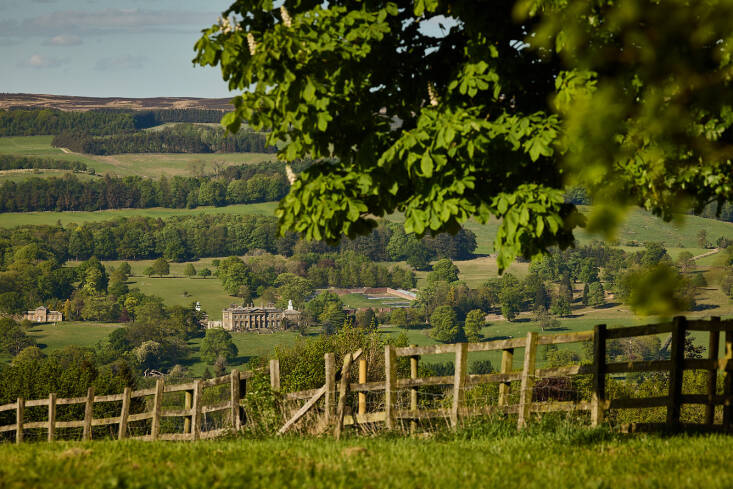 Above: By prioritizing nature, adopting soil-friendly farming methods, regenerating its woodlands, moorland, upland pastures, and arable land, and re-inventing agricultural properties, the Reserve aims to restore balance and harmony.
Above: By prioritizing nature, adopting soil-friendly farming methods, regenerating its woodlands, moorland, upland pastures, and arable land, and re-inventing agricultural properties, the Reserve aims to restore balance and harmony.
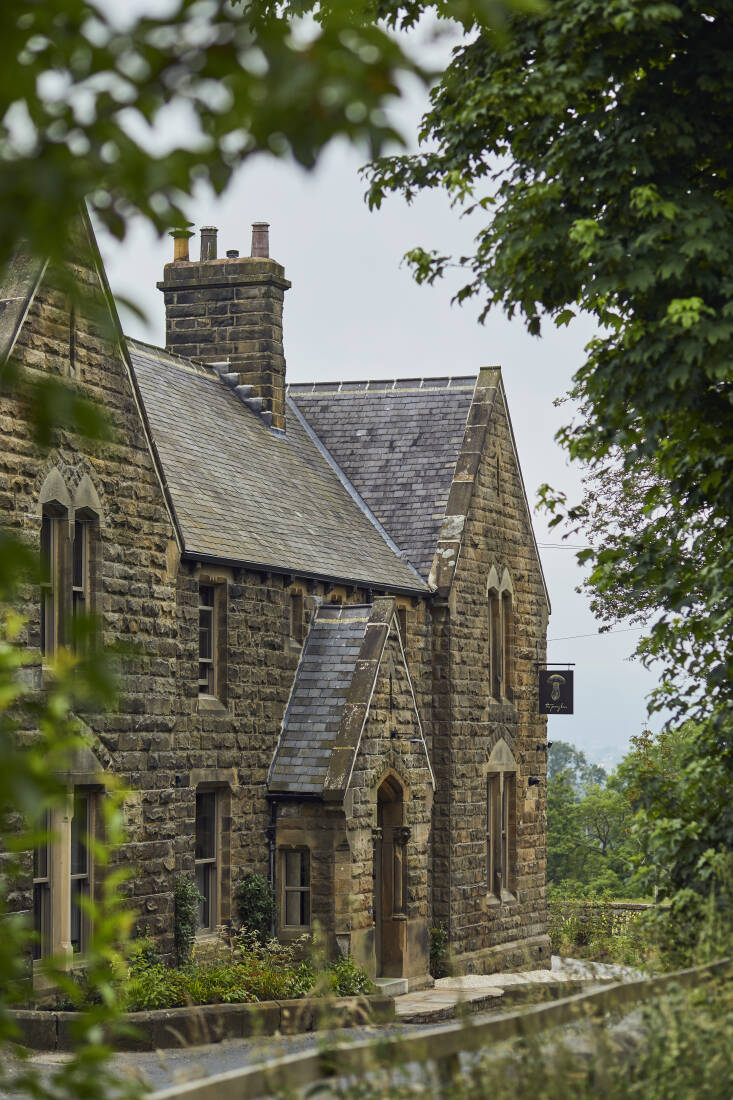 Above: Named after a mushroom growing on the Reserve, The Penny Bun inn plays a pivotal role as a showcase for Denton’s commitment to sustainable design and its regenerative farming philosophy.
Above: Named after a mushroom growing on the Reserve, The Penny Bun inn plays a pivotal role as a showcase for Denton’s commitment to sustainable design and its regenerative farming philosophy.
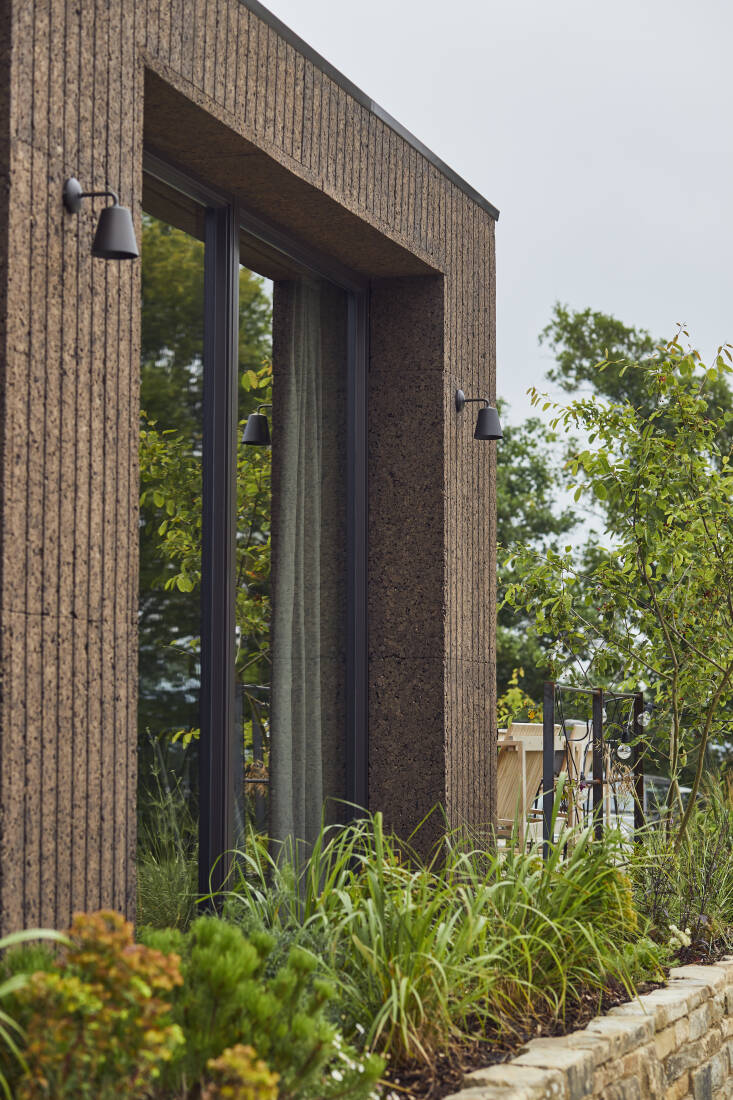 Above: BOX9’s dining room extension was built with a super-insulated timber frame, then clad in a natural, carbon-capturing, weather-resistant cork blanket (@amorimcork).
Above: BOX9’s dining room extension was built with a super-insulated timber frame, then clad in a natural, carbon-capturing, weather-resistant cork blanket (@amorimcork).
Hyper-local Food Sourcing
Head chef Tim Kitchen and his team believe that fresh, locally grown produce and locally reared meat is better for our taste buds and better for the planet. Aiming to reduce “food miles to food meters,” the inn offers an ever-changing, hyper-seasonal farm-to-fork menu, championing Yorkshire provenance, foraging, and low-waste cuisine.
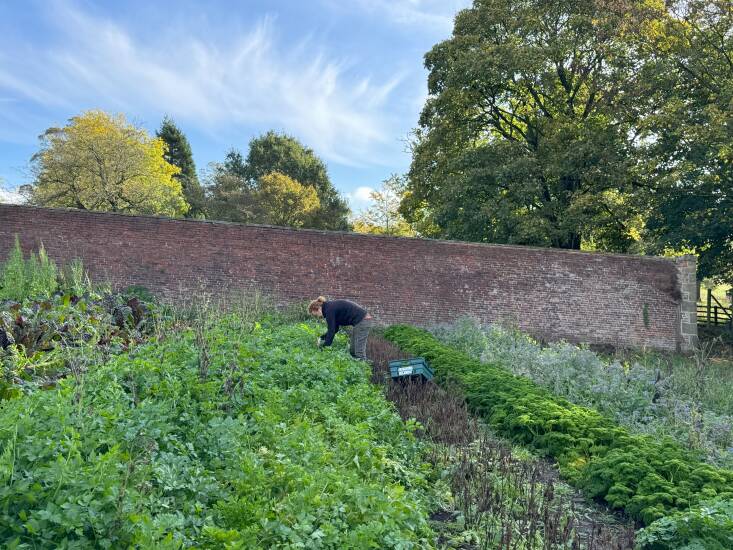 Above: The walled garden adjacent to Denton Hall has been brought back to life for the first time in 60 years and yields an ever-growing supply of responsibly grown produce for The Penny Bun and guests hiring the Hall.
Above: The walled garden adjacent to Denton Hall has been brought back to life for the first time in 60 years and yields an ever-growing supply of responsibly grown produce for The Penny Bun and guests hiring the Hall.
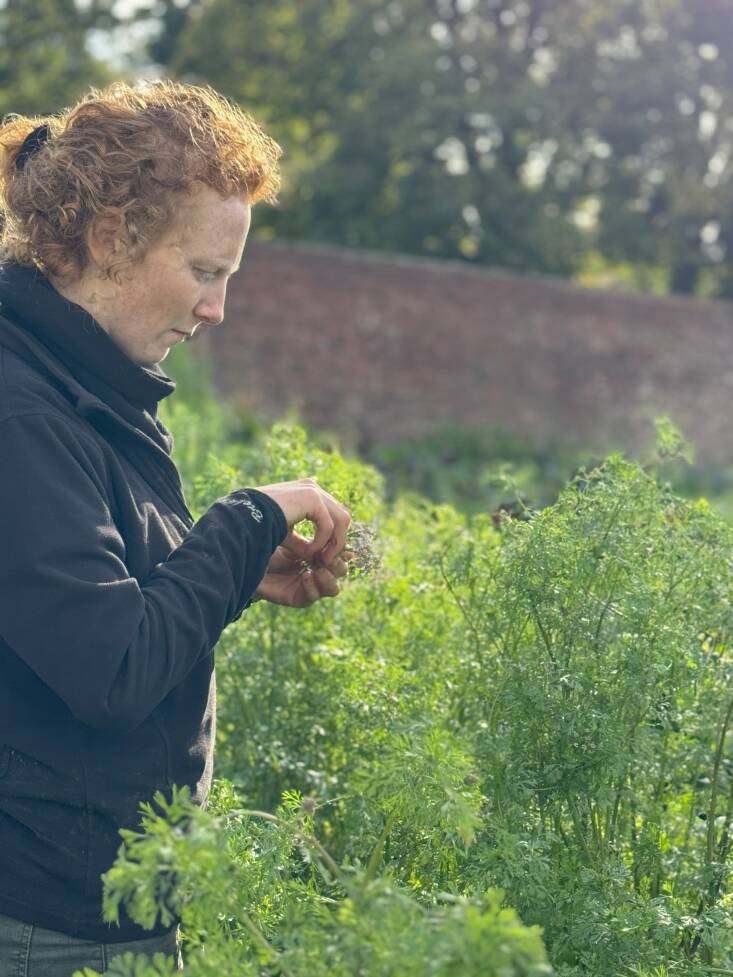 Above: Head grower Beth busy in the walled garden, which has just produced a bumper crop of mixed salad leaves, broad beans, and carrots—all freshly-picked and chemical-free.
Above: Head grower Beth busy in the walled garden, which has just produced a bumper crop of mixed salad leaves, broad beans, and carrots—all freshly-picked and chemical-free.
Healthy Soil
Healthy soil is vital. Decades of atmospheric pollution, forced production and overgrazing have depleted the soil biosphere, so new practices are required to help it recover and repopulate.
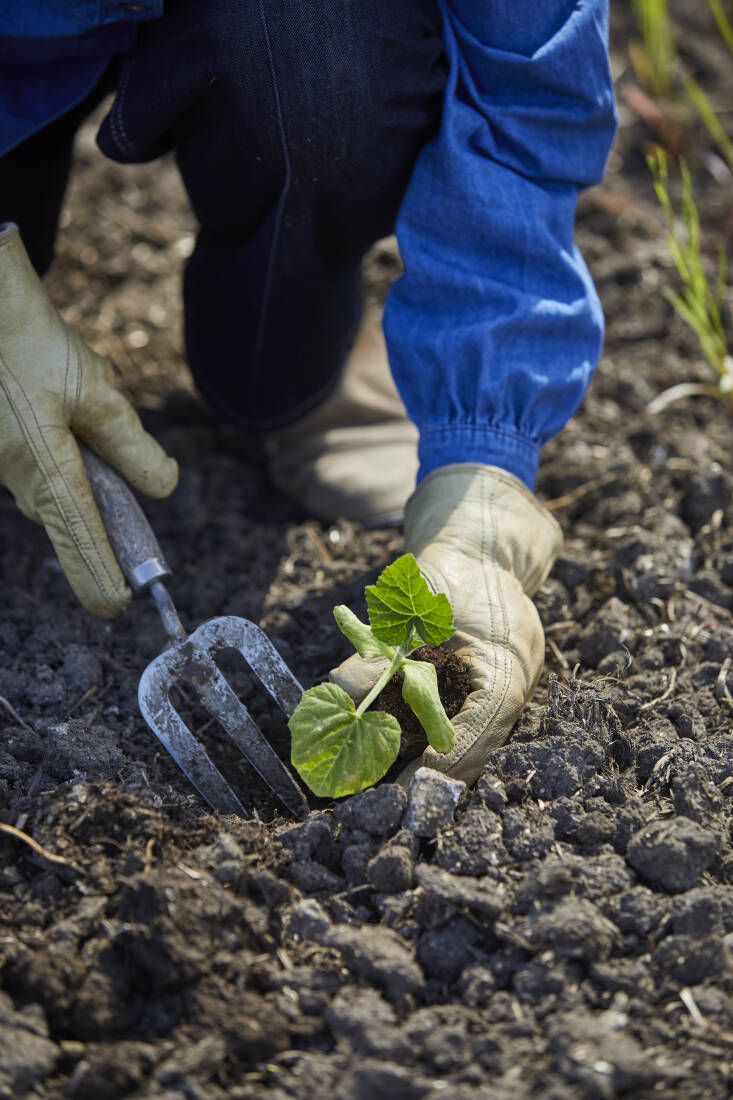 Above: Denton Reserve is committed to removing chemicals, fertilizers, herbicides, and pesticides estate-wide. Moving away from acres of sheep-covered grassland, a hay meadow has been seeded to enhance biodiversity and encourage the return of key species like yellow rattle.
Above: Denton Reserve is committed to removing chemicals, fertilizers, herbicides, and pesticides estate-wide. Moving away from acres of sheep-covered grassland, a hay meadow has been seeded to enhance biodiversity and encourage the return of key species like yellow rattle.
Heritage Breeds
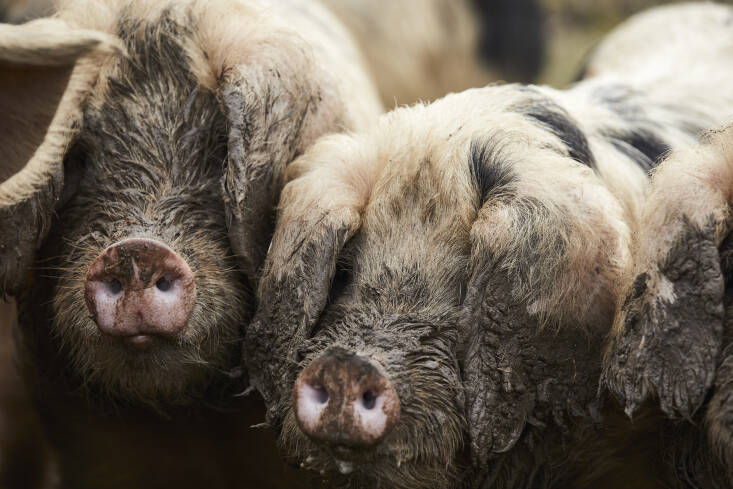 Above: Tamworth Pigs, one of the oldest and purest breeds of pigs believed to descend from wild boar, have been reintroduced to Denton Reserve. Not only are these animals prized for their meat, they are also natural foragers and by rootling, turning over the soil, leaves and organic matter with their long snouts, they increase carbon storage.
Above: Tamworth Pigs, one of the oldest and purest breeds of pigs believed to descend from wild boar, have been reintroduced to Denton Reserve. Not only are these animals prized for their meat, they are also natural foragers and by rootling, turning over the soil, leaves and organic matter with their long snouts, they increase carbon storage.
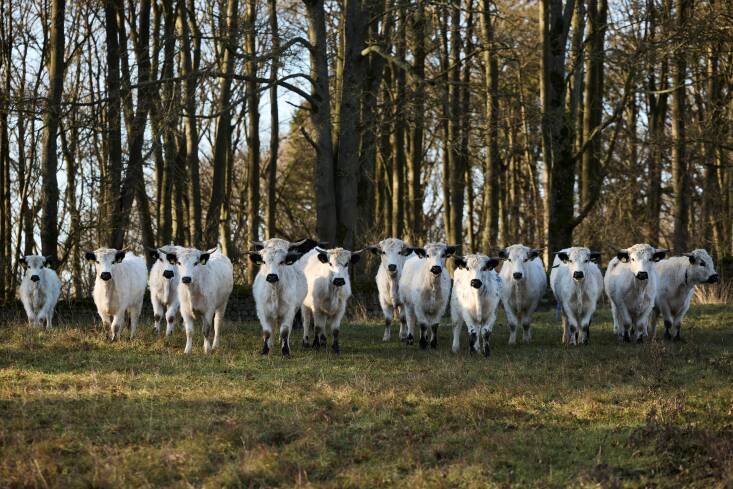 Above: Similarly, the estate is now home to a magnificent herd of White Park Cows, a very rare and ancient breed of beef cattle. Renowned for their high-quality, flavorful meat, they are hardy animals, well-suited to grazing upland.
Above: Similarly, the estate is now home to a magnificent herd of White Park Cows, a very rare and ancient breed of beef cattle. Renowned for their high-quality, flavorful meat, they are hardy animals, well-suited to grazing upland.
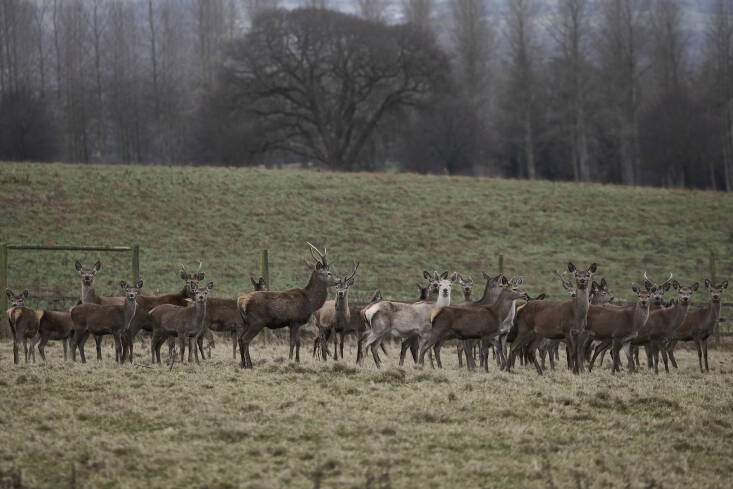 Above: Denton Hall, a Palladian stately home of national historic significance, boasts its own deer park.
Above: Denton Hall, a Palladian stately home of national historic significance, boasts its own deer park.
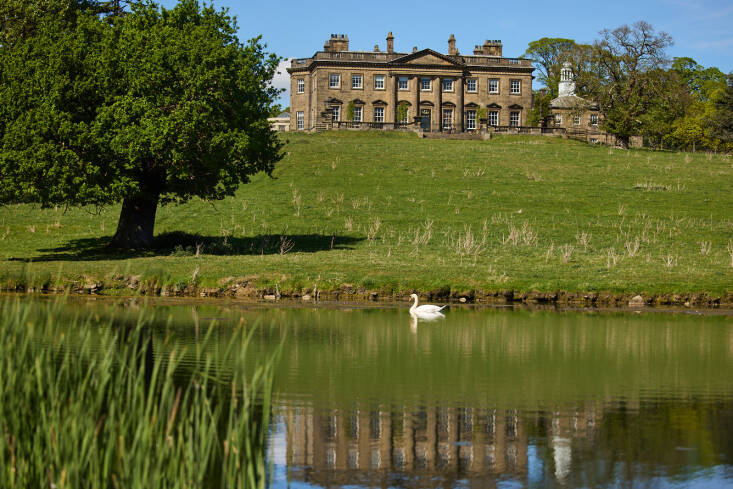 Above: Guests at Denton Hall are surrounded by beautiful countryside and have full access to the grounds, including a private lake.
Above: Guests at Denton Hall are surrounded by beautiful countryside and have full access to the grounds, including a private lake.
Land Restoration
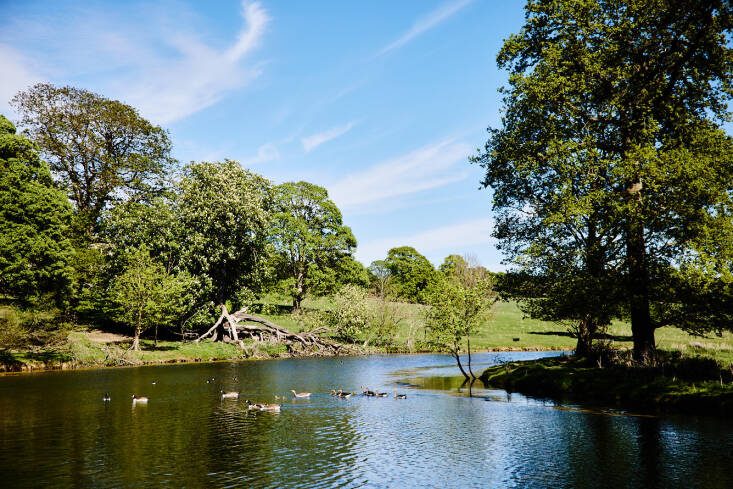 Above: Learning about water on the estate to improve existing watercourses and create thousands of meters of new ones, is a priority. A beaver enclosure has been created and will hopefully rehome beavers by the end of the year.
Above: Learning about water on the estate to improve existing watercourses and create thousands of meters of new ones, is a priority. A beaver enclosure has been created and will hopefully rehome beavers by the end of the year.
Increasing hydrological resilience in the Reserve’s upland peatland habitats, while supporting biodiversity is essential. Healthy wetland ecosystems act as carbon sinks, but degraded and dried out, release CO₂ into the atmosphere.
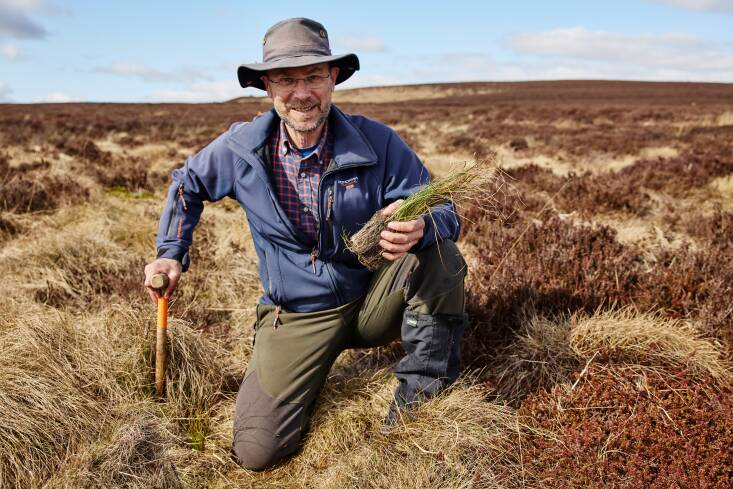 Above: Together with Yorkshire Peat Partnership (YPP), Nick Bailey and an army of volunteers completed initial moorland restoration work this year.
Above: Together with Yorkshire Peat Partnership (YPP), Nick Bailey and an army of volunteers completed initial moorland restoration work this year.
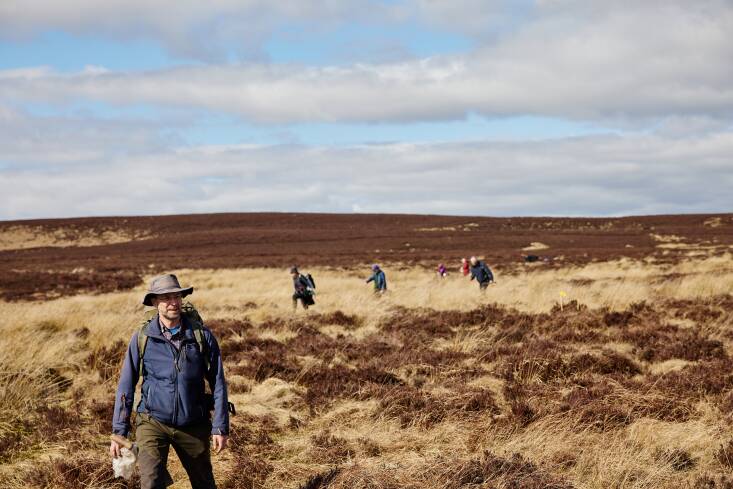 Above: The dedicated team of Denton Reserve volunteers has achieved 550 drainage interventions and built many leaky dams to improve natural flood management, as well as planting 68,000 sphagnum moss plugs and 24,000 cotton grass plugs.
Above: The dedicated team of Denton Reserve volunteers has achieved 550 drainage interventions and built many leaky dams to improve natural flood management, as well as planting 68,000 sphagnum moss plugs and 24,000 cotton grass plugs.
Whether organizing local community exchange evenings to inform and foster dialogue, measuring and capturing data from the whole estate (by fall, they will have a holistic picture of the prevalence of all species, counting carbon stores, habitats, trees, reptiles, birds, amphibians, deer, fish, butterflies, moths, hedgehogs, otters, mink, raptors, owls and water voles), or working with partners to gain a better understanding of the value of the natural capital on the land, Denton Reserve is observing, listening, and learning organically by letting nature do its thing.
“Mighty oaks from little acorns grow.” In all, 40,000 trees have been planted so far.
For more information about this ambitious project, follow here.
See also:



